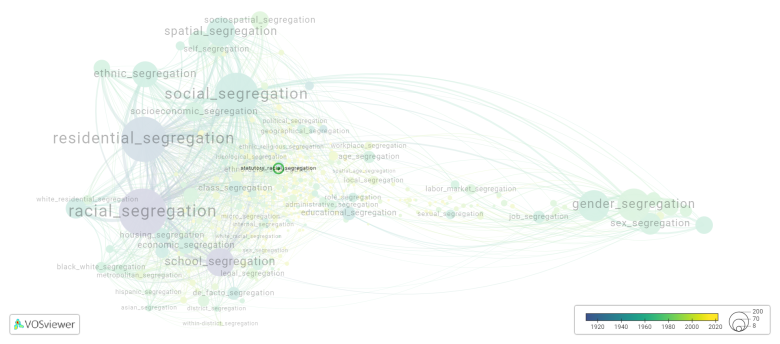Statutory racial segregation: Difference between revisions
(Creating page) |
(Creating page) |
||
| (2 intermediate revisions by the same user not shown) | |||
| Line 12: | Line 12: | ||
Statutory racial segregation has been widely recognized as a violation of human rights and has been condemned by international organizations such as the United Nations. Many countries, including the United States and South Africa, have since implemented legislation to dismantle these systems of segregation and promote racial equality. However, the effects of past segregation can still be felt in these societies, and efforts to address the resulting social and economic inequalities continue. | Statutory racial segregation has been widely recognized as a violation of human rights and has been condemned by international organizations such as the United Nations. Many countries, including the United States and South Africa, have since implemented legislation to dismantle these systems of segregation and promote racial equality. However, the effects of past segregation can still be felt in these societies, and efforts to address the resulting social and economic inequalities continue. | ||
===== Synonyms ===== | ===== Synonyms ===== | ||
The following terms are synonymous with: | The following terms are synonymous with statutory racial segregation: | ||
statutory race segregation. | statutory race segregation. | ||
| Line 24: | Line 24: | ||
[[File:statutory_racial_segregation.png|780x780px]] | [[File:statutory_racial_segregation.png|780x780px]] | ||
This visualization is based on the study [[Segregation_Wiki:About| The Multidisciplinary Landscape of Segregation Research]]. | |||
For the complete network of | For the complete network of interrelated segregation forms, please refer to: | ||
* [https://tinyurl.com/2235lkhw First year of publication] | |||
* [https://tinyurl.com/2d8wg5n3 Louvain clusters] | |||
* [https://tinyurl.com/223udk5r Betweenness centrality] | |||
* [https://tinyurl.com/244d8unz Disciplines in which segregation forms first emerged (Scopus database).] | |||
==References== | ==References== | ||
==Notes== | ==Notes== | ||
Latest revision as of 07:17, 16 October 2024
Date and country of first publication[1][edit | edit source]
1987
South Africa
Definition[edit | edit source]
Statutory racial segregation refers to the legal enforcement of racial separation or discrimination by government authorities. It typically involves the implementation of laws, policies, and practices that intentionally separate individuals or groups based on race.
One example of statutory racial segregation in the United States was the Jim Crow laws, which were enacted in the late 19th and early 20th centuries. These laws enforced racial segregation in public facilities such as schools, transportation, restaurants, and housing, primarily between White and African American citizens.
Another example is apartheid in South Africa, which was a system of racial segregation and discrimination enforced by the South African government from 1948 to 1994. This system separated communities based on race and limited the rights and freedoms of non-White citizens.
Statutory racial segregation has been widely recognized as a violation of human rights and has been condemned by international organizations such as the United Nations. Many countries, including the United States and South Africa, have since implemented legislation to dismantle these systems of segregation and promote racial equality. However, the effects of past segregation can still be felt in these societies, and efforts to address the resulting social and economic inequalities continue.
Synonyms[edit | edit source]
The following terms are synonymous with statutory racial segregation:
statutory race segregation.
References and literature addressing this segregation form under these synonymous terms can be found below.
See also[edit | edit source]
Related segregation forms[edit | edit source]
Statutory racial segregation is frequently discussed in the literature with the following segregation forms:
residential segregation, urban residential segregation

This visualization is based on the study The Multidisciplinary Landscape of Segregation Research.
For the complete network of interrelated segregation forms, please refer to:
References[edit | edit source]
Notes[edit | edit source]
- ↑ Date and country of first publication as informed by the Scopus database (December 2023).
At its current state, this definition has been generated by a Large Language Model (LLM) so far without review by an independent researcher or a member of the curating team of segregation experts that keep the Segregation Wiki online. While we strive for accuracy, we cannot guarantee its reliability, completeness and timeliness. Please use this content with caution and verify information as needed. Also, feel free to improve on the definition as you see fit, including the use of references and other informational resources. We value your input in enhancing the quality and accuracy of the definitions of segregation forms collectively offered in the Segregation Wiki ©.
Statutory racial segregation appears in the following literature[edit | edit source]
Christopher A.J. (1987). Apartheid planning in South Africa: the case of Port Elizabeth.. Geographical Journal, 153(2), 195-204. https://doi.org/10.2307/634871
Christopher A.J. (1989). Spatial variations in the application of residential segregation in South African cities. Geoforum, 20(3), 253-267. https://doi.org/10.1016/0016-7185(89)90001-8
Mumford K. (1999). After Hugh: Statutory race segregation in colonial America, 1630 1725. American Journal of Legal History, 43(3), XII-. Temple University.https://doi.org/10.2307/846160
